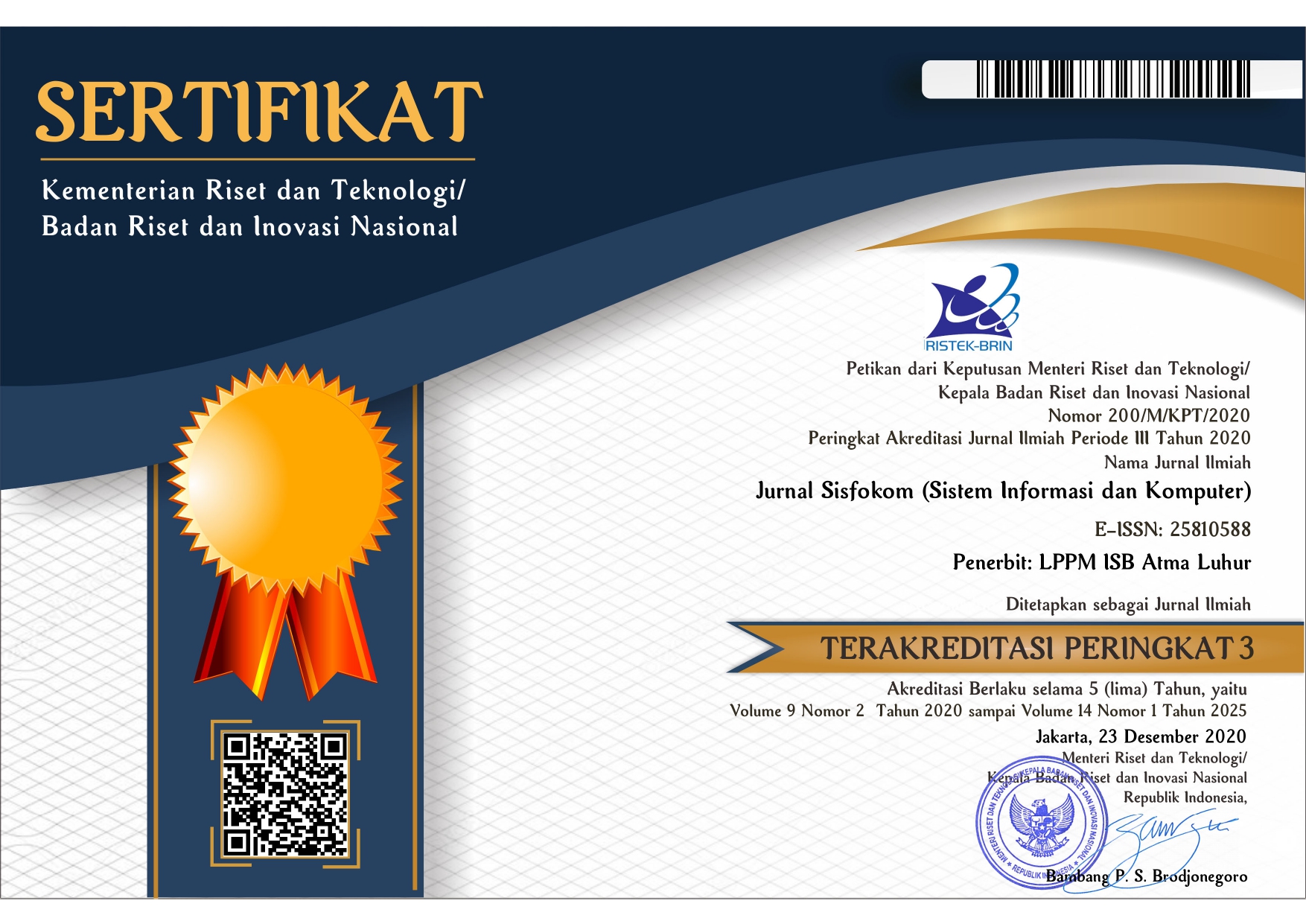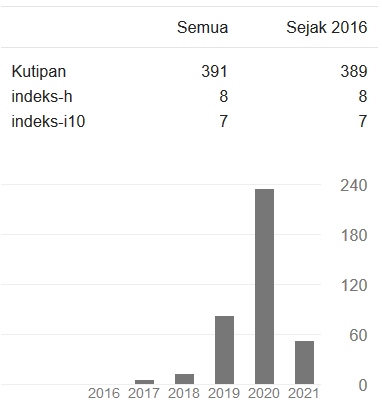Enhancing Hybrid Flow Shop Scheduling Problem with a Hybrid Metaheuristic and Machine Learning Approach for Dynamic Parameter Tuning
DOI:
https://doi.org/10.32736/sisfokom.v13i3.2290Keywords:
Hybrid Flow Shop Scheduling Problem, Ant Colony Optimization, Iterated Local Search, Proximal Policy Optimization, Machine learning.Abstract
This paper addresses the Hybrid Flow Shop Scheduling Problem (HFSSP) by integrating metaheuristic (MHs) and machine learning (ML) approaches. Specifically, we propose a hybrid algorithm by combining Ant Colony Optimization (ACO) and Iterated Local Search (ILS) to form ACOILS. To further enhance the performance of this hybrid approach, we employ Proximal Policy Optimization (PPO), which is used for dynamic tuning of key parameters within the hybrid algorithm. The introduction of PPO allows real-time adjustment of key parameters, such as pheromone evaporation rates and local search intensity, to balance exploration and exploitation more effectively. Comparative experiments against the non-learning version of ACOILS and Simulated Annealing (SA) show that the learning based LACOILS significantly reduces the percentage deviation from the lower bound while maintaining stable performance through dynamic tuning. In terms of numerical results, LACOILS consistently outperforms SA and ACOILS. For smaller instances (N=20), it achieves up to 56.52% improvement over ACOILS and 12.5% over SA. For larger instances (N=150), LACOILS shows up to 29.82% improvement over ACOILS and 9.09% over SA, demonstrating its superior solution quality and efficiency.References
R. Ruiz and J. A. Vázquez-Rodríguez, “The hybrid flow shop scheduling problem,” Eur J Oper Res, vol. 205, no. 1, pp. 1–18, 2010.
J. H. Holland, “Genetic algorithms,” Sci Am, vol. 267, no. 1, pp. 66–73, 1992.
J. Kennedy and R. Eberhart, “Particle swarm optimization,” in Proceedings of ICNN’95-international conference on neural networks, IEEE, 1995, pp. 1942–1948.
M. Dorigo, M. Birattari, and T. Stutzle, “Ant colony optimization,” IEEE Comput Intell Mag, vol. 1, no. 4, pp. 28–39, 2006.
H. R. Lourenço, O. C. Martin, and T. Stützle, “Iterated local search,” in Handbook of metaheuristics, Springer, 2003, pp. 320–353.
E.-G. Talbi, Metaheuristics: from design to implementation. John Wiley & Sons, 2009.
E.-G. Talbi, “Machine learning into metaheuristics: A survey and taxonomy,” ACM Computing Surveys (CSUR), vol. 54, no. 6, pp. 1–32, 2021.
A. A. Hussein, E. T. Yassen, and A. N. Rashid, “Grey Wolf Optimizer for Green Vehicle Routing Problem.,” International Journal of Intelligent Engineering & Systems, vol. 16, no. 5, 2023.
J. Schulman, F. Wolski, P. Dhariwal, A. Radford, and O. Klimov, “Proximal policy optimization algorithms,” arXiv preprint arXiv:1707.06347, 2017.
J. Fan, Z. Wang, Y. Xie, and Z. Yang, “A theoretical analysis of deep Q-learning,” in Learning for dynamics and control, PMLR, 2020, pp. 486–489.
M. Sewak and M. Sewak, “Actor-critic models and the A3C: The asynchronous advantage actor-critic model,” Deep reinforcement learning: frontiers of artificial intelligence, pp. 141–152, 2019.
P. Henderson, R. Islam, P. Bachman, J. Pineau, D. Precup, and D. Meger, “Deep reinforcement learning that matters,” in Proceedings of the AAAI conference on artificial intelligence, 2018.
J. Duan, F. Liu, Q. Zhang, J. Qin, and Y. Zhou, “Genetic programming hyper-heuristic-based solution for dynamic energy-efficient scheduling of hybrid flow shop scheduling with machine breakdowns and random job arrivals,” Expert Syst Appl, p. 124375, 2024.
J. Cai, D. Lei, J. Wang, and L. Wang, “A novel shuffled frog-leaping algorithm with reinforcement learning for distributed assembly hybrid flow shop scheduling,” Int J Prod Res, vol. 61, no. 4, pp. 1233–1251, 2023.
J.-J. Wang and L. Wang, “A cooperative memetic algorithm with learning-based agent for energy-aware distributed hybrid flow-shop scheduling,” IEEE Transactions on Evolutionary Computation, vol. 26, no. 3, pp. 461–475, 2021.
W. Zhang, C. Li, M. Gen, W. Yang, and G. Zhang, “A multiobjective memetic algorithm with particle swarm optimization and Q-learning-based local search for energy-efficient distributed heterogeneous hybrid flow-shop scheduling problem,” Expert Syst Appl, vol. 237, p. 121570, 2024.
Z. Zhang, Z. Shao, W. Shao, J. Chen, and D. Pi, “MRLM: A meta-reinforcement learning-based metaheuristic for hybrid flow-shop scheduling problem with learning and forgetting effects,” Swarm Evol Comput, vol. 85, p. 101479, 2024.
X. Chen et al., “Reinforcement learning for distributed hybrid flowshop scheduling problem with variable task splitting towards mass personalized manufacturing,” J Manuf Syst, vol. 76, pp. 188–206, 2024.
B. Xi and D. Lei, “Q-learning-based teaching-learning optimization for distributed two-stage hybrid flow shop scheduling with fuzzy processing time,” Complex System Modeling and Simulation, vol. 2, no. 2, pp. 113–129, 2022.
M. K. Hajji, O. Hamlaoui, and H. Hadda, “A simulated annealing metaheuristic approach to hybrid flow shop scheduling problem,” Advances in Industrial and Manufacturing Engineering, p. 100144, 2024.
H. Zhong and T. Zhang, “A theoretical analysis of optimistic proximal policy optimization in linear markov decision processes,” Adv
J. A. Ghani, I. A. Choudhury, and H. H. Hassan, “Application of Taguchi method in the optimization of end milling parameters,” J Mater Process Technol, vol. 145, no. 1, pp. 84–92, 2004, doi: https://doi.org/10.1016/S0924-0136(03)00865-3.
Z. Jalilibal, A. Amiri, P. Castagliola, and M. B. C. Khoo, “Monitoring the coefficient of variation: A literature review,” Comput Ind Eng, vol. 161, p. 107600, 2021.
M. R. Simi, B. K. Bindhu, A. Varghese, and M. R. Rani, “Optimization of DRASTICA vulnerability assessment model by Wilcoxon rank sum non parametrical statistical test,” Mater Today Proc, vol. 58, pp. 121–127, 2022.
V. Vignesh, D. Pavithra, K. Dinakaran, and C. Thirumalai, “Data analysis using box and whisker plot for stationary shop analysis,” in 2017 International Conference on Trends in Electronics and Informatics (ICEI), IEEE, 2017, pp. 1072–1076.
Downloads
Published
Issue
Section
License
The copyright of the article that accepted for publication shall be assigned to Jurnal Sisfokom (Sistem Informasi dan Komputer) and LPPM ISB Atma Luhur as the publisher of the journal. Copyright includes the right to reproduce and deliver the article in all form and media, including reprints, photographs, microfilms, and any other similar reproductions, as well as translations.
Jurnal Sisfokom (Sistem Informasi dan Komputer), LPPM ISB Atma Luhur, and the Editors make every effort to ensure that no wrong or misleading data, opinions or statements be published in the journal. In any way, the contents of the articles and advertisements published in Jurnal Sisfokom (Sistem Informasi dan Komputer) are the sole and exclusive responsibility of their respective authors.
Jurnal Sisfokom (Sistem Informasi dan Komputer) has full publishing rights to the published articles. Authors are allowed to distribute articles that have been published by sharing the link or DOI of the article. Authors are allowed to use their articles for legal purposes deemed necessary without the written permission of the journal with the initial publication notification from the Jurnal Sisfokom (Sistem Informasi dan Komputer).
The Copyright Transfer Form can be downloaded [Copyright Transfer Form Jurnal Sisfokom (Sistem Informasi dan Komputer).
This agreement is to be signed by at least one of the authors who have obtained the assent of the co-author(s). After submission of this agreement signed by the corresponding author, changes of authorship or in the order of the authors listed will not be accepted. The copyright form should be signed originally, and send it to the Editorial in the form of scanned document to sisfokom@atmaluhur.ac.id.









